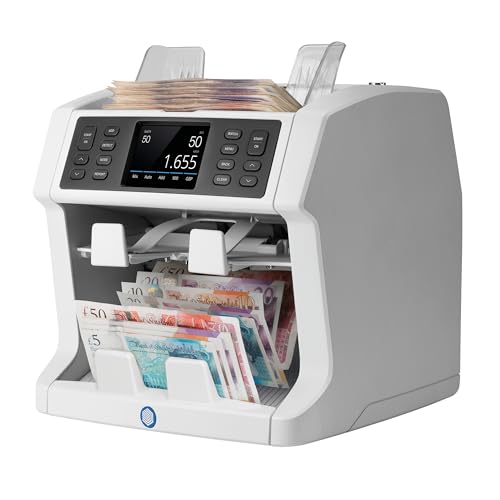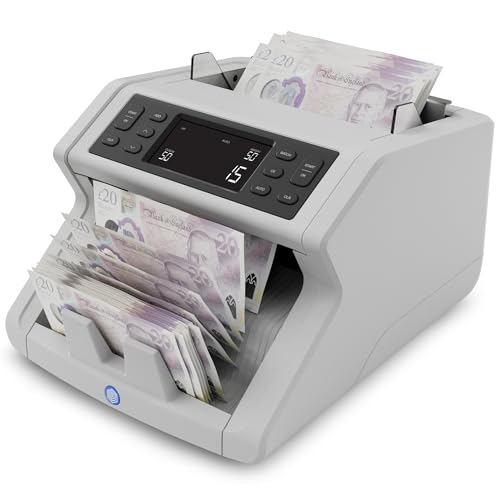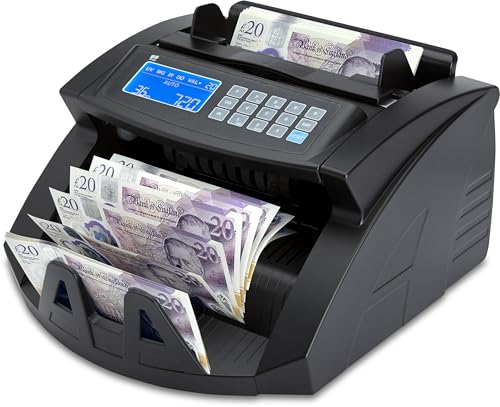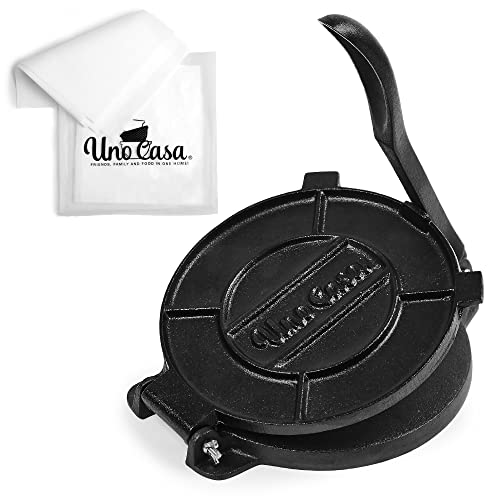Understanding Money Counters: What They Are and How They Work
What Is a Money Counter?
A money counter is a device designed to quickly and efficiently count large quantities of banknotes. These machines can distinguish between different denominations and often come with features that help detect counterfeit notes. Whether you run a business that handles cash daily or simply want to streamline your personal finances, a money counter can save you both time and effort.
How Do Money Counters Operate?
Using a money counter is straightforward. You simply load the machine with a stack of banknotes, and it will automatically count and sort the money while providing you with a display of the total sum. Most models are equipped with sensors that help identify the currency and verify the authenticity of each note, ensuring that you receive a reliable count without having to manually check each bill.
Key Features to Consider When Choosing a Money Counter
Counting Speed and Capacity
When selecting a money counter, one of the most important features to evaluate is the counting speed. This is measured in banknotes per minute (BPM). If you frequently deal with large volumes of cash, a machine with a higher BPM can dramatically improve efficiency. Additionally, the capacity of the machine, or how many bills it can hold at one time, is crucial. Opt for a counter that meets your volume needs to reduce the number of times you need to stop and refill.
Counterfeit Detection Technology
In today’s world, counterfeit currency poses a significant risk. Many money counters are equipped with advanced counterfeit detection features, including ultraviolet (UV) light, magnetic (MG) sensors, and infrared (IR) technology. These functionalities help ensure that every note is verified, reducing the chances of accepting fake bills and protecting your assets.
Ease of Use
A user-friendly interface is another important aspect. Look for models with clear displays and intuitive controls, which will make operating the machine straightforward even for those who are not tech-savvy. Features such as automatic start and stop functions can greatly enhance usability, making your counting process more efficient.
Portability and Design
If you need to move your money counter between different locations, consider its size and weight. A compact design that’s lightweight and easy to transport can be very beneficial. In contrast, if it will remain in one location, you may prioritise additional features over portability.
Price and Warranty
Money counters are available at various price points, so establishing a budget will help narrow your options. It’s wise to look for models that come with a warranty, which can provide peace of mind and protect your investment in case of any issues that arise.
Comparing Different Types of Money Counters
Basic Money Counters
Basic models are suitable for those who need a straightforward counting experience without advanced features. These devices typically focus solely on counting bills, making them ideal for personal use or small businesses that don’t require counterfeit detection or sorting functions.
Value Counting Machines
Value counting machines not only count the bills but also calculate the total amount of cash based on the denominations fed into the machine. This feature is beneficial for businesses that need to know their cash totals quickly without manual calculations.
Heavy-Duty Counters
Heavy-duty money counters are designed for high-volume operations, such as banks and retail environments. These machines are built to withstand extensive use and come equipped with advanced counterfeit detection systems, automated sorting features, and high counting speeds.
Smart Money Counters
Smart money counters often include additional capabilities such as connectivity to computers or apps, allowing users to track cash flows electronically or integrate with accounting systems. These models are perfect for businesses seeking to streamline their financial processes.
Top Recommendations: Our Best Picks for Money Counters
Best Overall: Model A
Model A is a top choice due to its combination of speed, accuracy, and usability. It features a high counting speed, built-in counterfeit detection, and a user-friendly display, making it ideal for both personal and professional use.
Best Budget Option: Model B
For those on a tighter budget, Model B offers essential counting features without breaking the bank. It may lack some advanced functions but is reliable and perfect for personal use.
Best Heavy-Duty: Model C
Model C stands out for businesses that deal with high volumes of cash daily. With its robust design, quick counting capabilities, and superior counterfeit detection, it meets the demands of busy environments.
Best Smart Counter: Model D
Model D takes convenience to the next level with its smart features. It allows users to connect to mobile devices for tracking and reporting cash totals, suitable for businesses looking to modernise their cash handling.
How to Maintain Your Money Counter for Longevity
Keep It Clean
Regular maintenance is key to ensuring the longevity of your money counter. Dust and debris can accumulate inside the machine, affecting its accuracy. Periodically cleaning the rollers and sensors with a soft, lint-free cloth will help maintain optimal functionality.
Use It Correctly
Using the money counter properly is essential for its durability. Avoid overloading the machine with too many bills at once and ensure that only the appropriate currency type is fed into the counter to prevent jams and malfunctions.
Store It Safely
When the money counter is not in use, store it in a cool, dry place to avoid any potential damage from humidity or high temperatures. Keeping it covered can also protect it from dust, prolonging its lifespan.



























